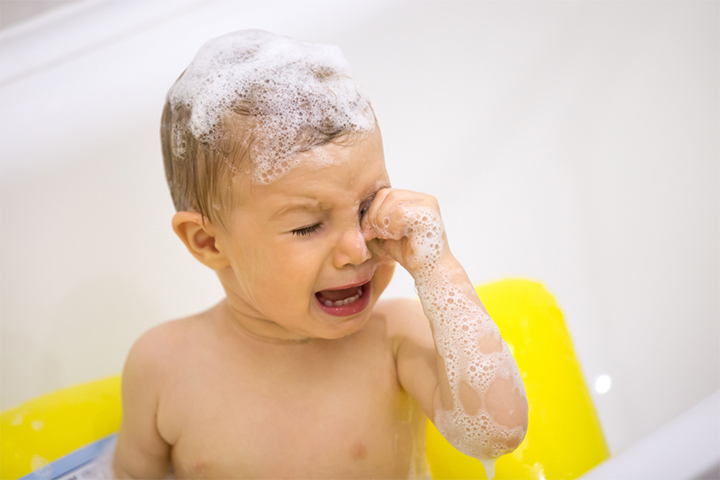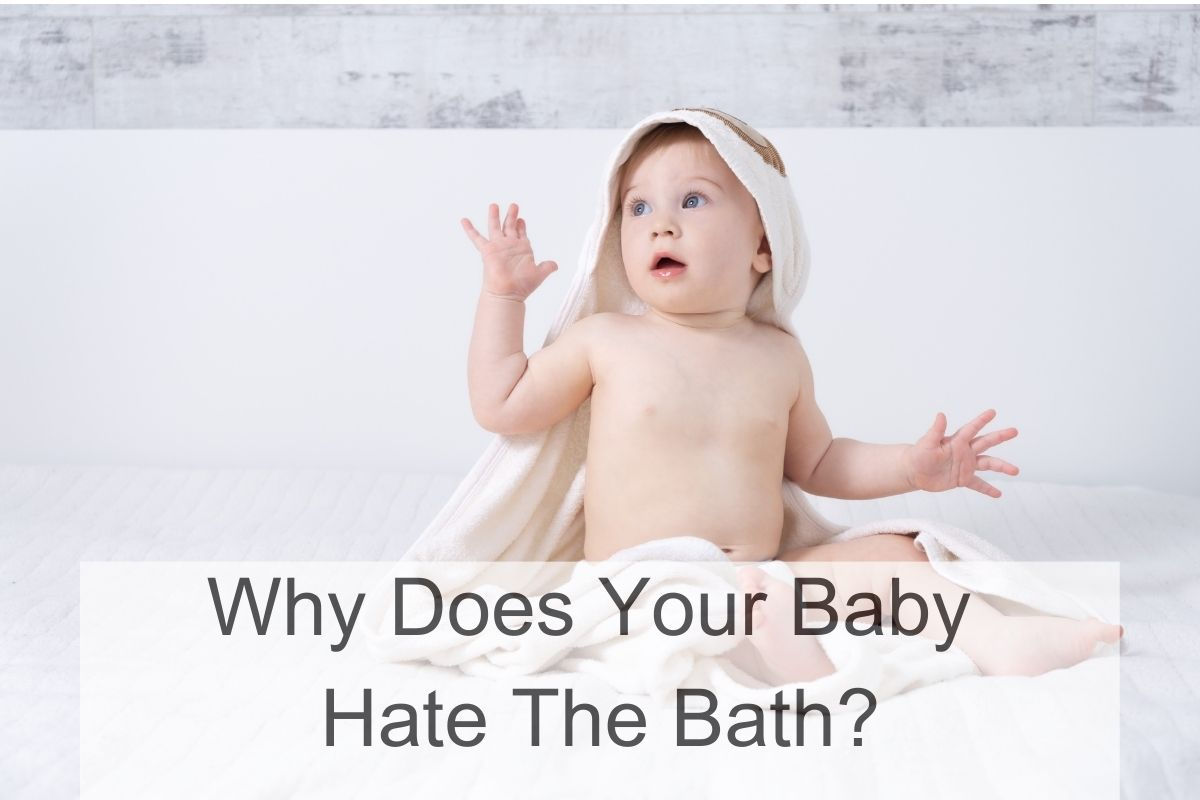As a new parent, you may be looking forward to giving your little one their first bath. However, your baby may not share your enthusiasm. In fact, they may scream and cry at the mere sight of the tub. You may be wondering why your baby hates the bath and what you can do to make it a more pleasant experience for both of you.

One reason why your baby may hate the bath is because they are not used to the sensation of water on their skin. It can be a new and overwhelming experience for them. Another reason may be the temperature of the water. If it is too cold or too hot, your baby may feel uncomfortable and cry. Additionally, your baby may not like the feeling of being undressed and exposed, especially if they are used to being swaddled.
If your baby hates the bath, don’t worry, you are not alone. It is a common issue that many new parents face. In the next section, I will share some tips and tricks that have worked for me and other parents to make bath time a more enjoyable experience for both you and your baby.
Understanding Infant Bath Time Dislikes

As a new parent, it can be frustrating when your baby cries during bath time. However, it is essential to understand that some infants dislike the sensation of water and might need time to adjust to it. In this section, I will discuss some of the reasons why your baby might hate bath time.
Sensory Overload
Babies are still adjusting to their new environment, and they might be sensitive to the different sensations they experience during bath time. The sound of running water, the feeling of being wet, and the sensation of being touched can be overwhelming for some infants. If your baby seems agitated during bath time, try to minimize the number of sensory inputs. For example, you can use a washcloth instead of pouring water directly on your baby.
Temperature Sensitivity
Babies are more sensitive to temperature changes than adults. If the water is too hot or too cold, your baby might be uncomfortable and cry during bath time. To avoid this, make sure that the water temperature is warm but not hot. You can use a bath thermometer to check the water temperature before placing your baby in the tub.
Fear of Water
Some infants might develop a fear of water if they have had a negative experience during bath time. For example, if water accidentally gets into their eyes or ears, they might associate bath time with discomfort or pain. To help your baby overcome their fear of water, try to make bath time a positive experience. You can use bath toys, sing songs, and talk to your baby during bath time to distract them from any negative associations they might have with water.
Creating a Positive Bath Time Experience

As a parent, I know how challenging it can be when your baby hates the bath. However, with a few adjustments, you can turn bath time into a positive experience for both you and your baby. Here are some tips based on my own experience and research.
Pre-Bath Preparation
Before you start the bath, make sure everything you need is within reach. This includes towels, washcloths, soap, and any toys or distractions you plan to use. Also, ensure that the water temperature is comfortable for your baby. You can use a bath thermometer to check the temperature or test it with your elbow.
Comforting Techniques
Babies can feel anxious during bath time, so it’s important to make them feel comfortable and secure. You can do this by using comforting techniques such as singing, talking to them in a soothing voice, or holding them close. You can also try using a baby bath seat or a bath mat to keep them from slipping.
Engaging Distractions
Babies can get bored quickly, so it’s important to keep them engaged during bath time. You can use bath toys or books to distract them and make the experience more enjoyable. You can also sing songs or play games with them to make bath time more fun.
Addressing Safety Concerns

As a parent, safety is always a top concern while giving your baby a bath. Here are some tips to ensure a safe and enjoyable bath time experience for both you and your baby.
Slip Prevention
Babies are wiggly and slippery, which can make bath time challenging. To prevent slips and falls, use a non-slip mat or non-slip stickers at the bottom of the tub. You can also use a bath seat or support to keep your baby in place. Make sure to always keep a hand on your baby to prevent them from slipping.
Water Depth and Temperature Control
It’s important to fill the tub with just enough water to cover your baby’s legs and bottom. Too much water can be dangerous, as babies can easily slip under the water and drown. The ideal water temperature for a baby’s bath is between 90-100°F (32-38°C). You can use a bath thermometer to check the water temperature before putting your baby in the tub. Always test the water with your elbow or wrist to make sure it’s not too hot.
Routine and Consistency

As a new parent, I quickly learned that babies thrive on routine and consistency. Establishing a regular bath schedule can help your baby feel more comfortable and at ease during bath time.
Establishing a Bath Schedule
I found that setting a specific time for bath time helped my baby get into a routine and feel more comfortable with the process. Whether it’s every night before bed or every other day in the morning, choose a time that works best for you and your baby and stick to it.
Consistent Bath Time Rituals
In addition to a regular bath schedule, consistent bath time rituals can also help your baby feel more at ease. For example, I always started with a sponge bath when my baby was a newborn and gradually transitioned to a full bath as she got older.
I also found that using bath toys and singing to my baby during bath time helped distract her and make the experience more enjoyable. Whatever rituals you choose, make sure to stick to them consistently so your baby knows what to expect and feels more comfortable during bath time.
When to Seek Professional Advice
If your baby continues to hate bath time despite your efforts to make it enjoyable, it may be time to seek professional advice. A pediatrician or a child psychologist can help you determine the root cause of your baby’s aversion to baths and provide guidance on how to address it.
It’s important to rule out any underlying medical issues that may be causing your baby’s discomfort during bath time. Your pediatrician can examine your baby and recommend any necessary treatments or adjustments to your bathing routine.
If there are no medical issues, a child psychologist can help you identify any possible psychological factors that may be contributing to your baby’s aversion to baths. They can also provide strategies to help your baby feel more comfortable and secure during bath time.

